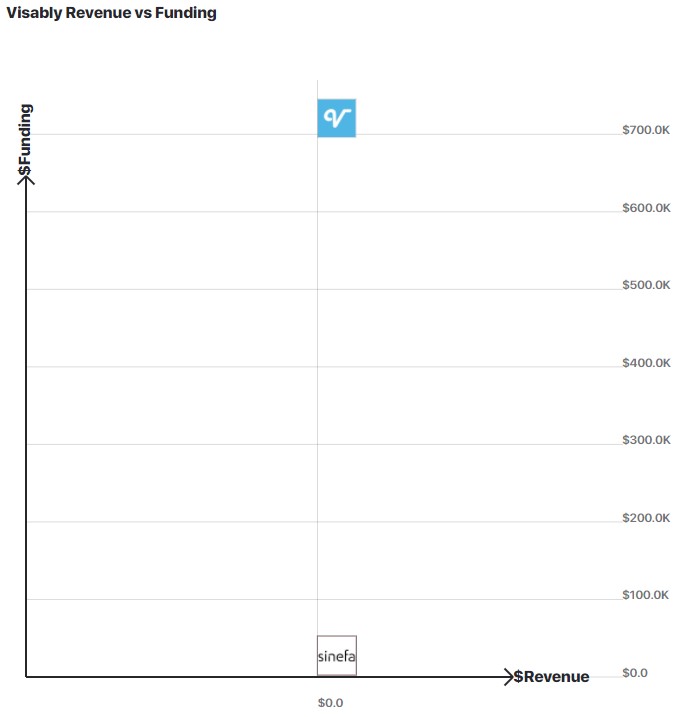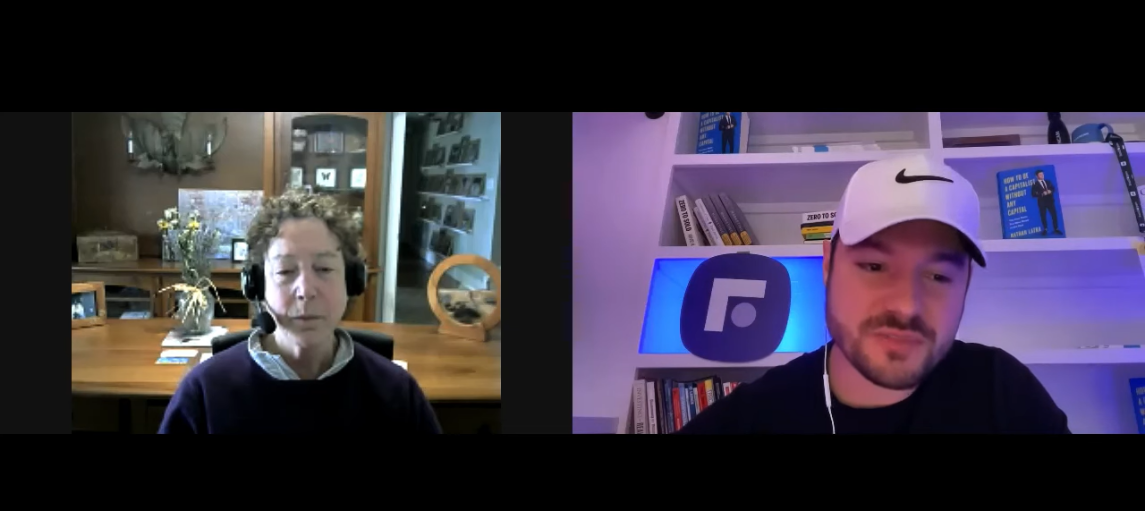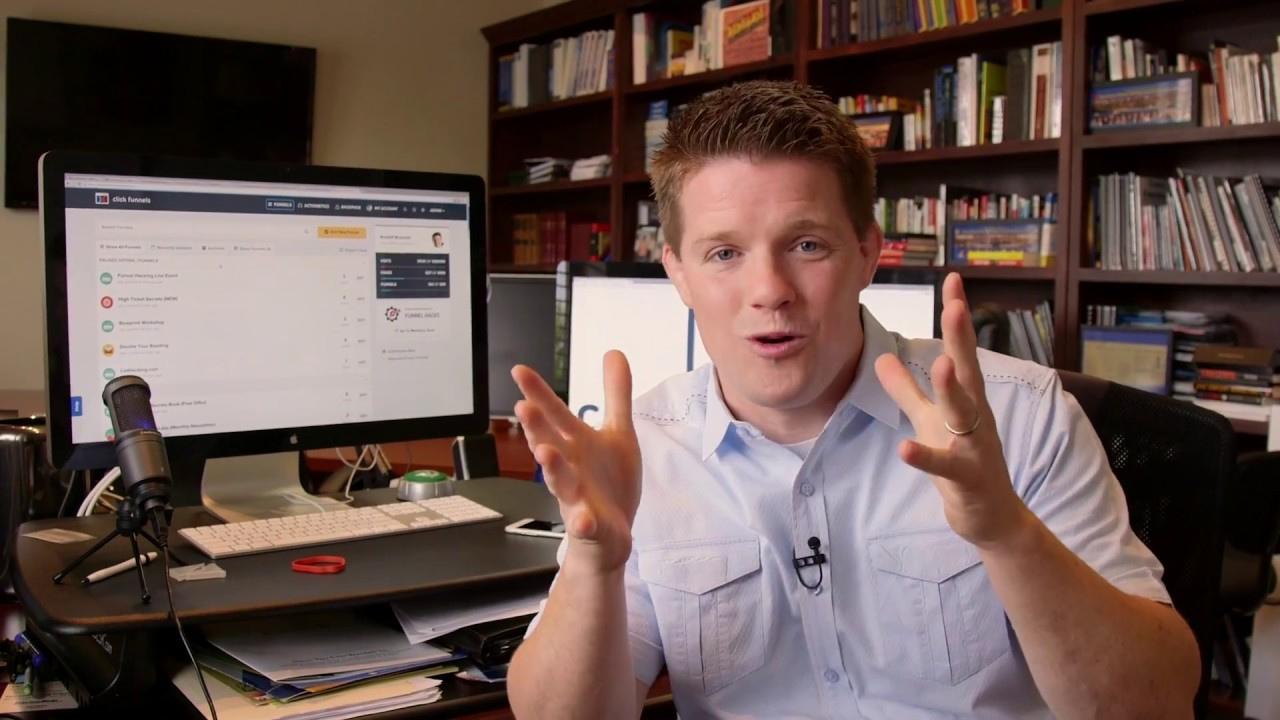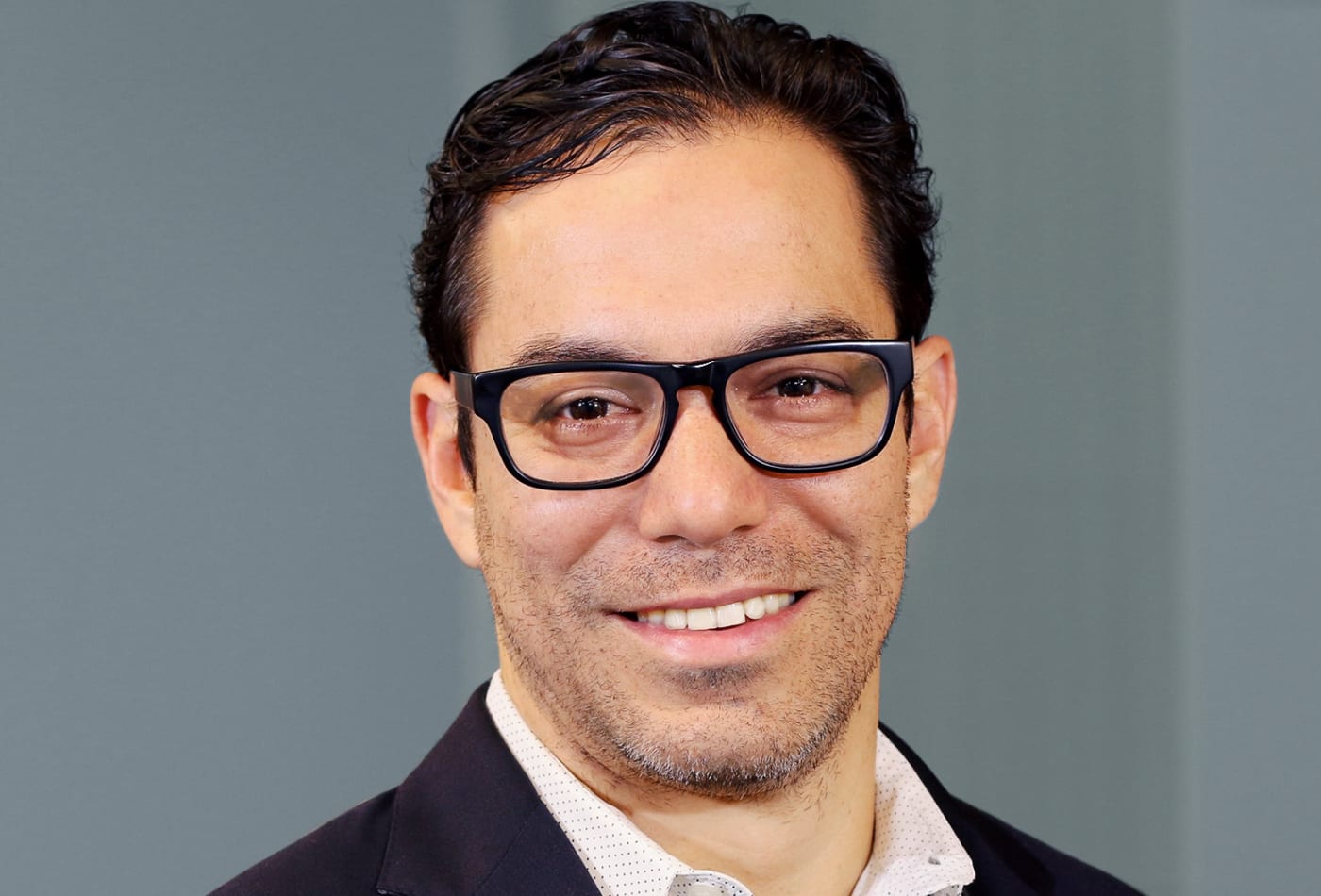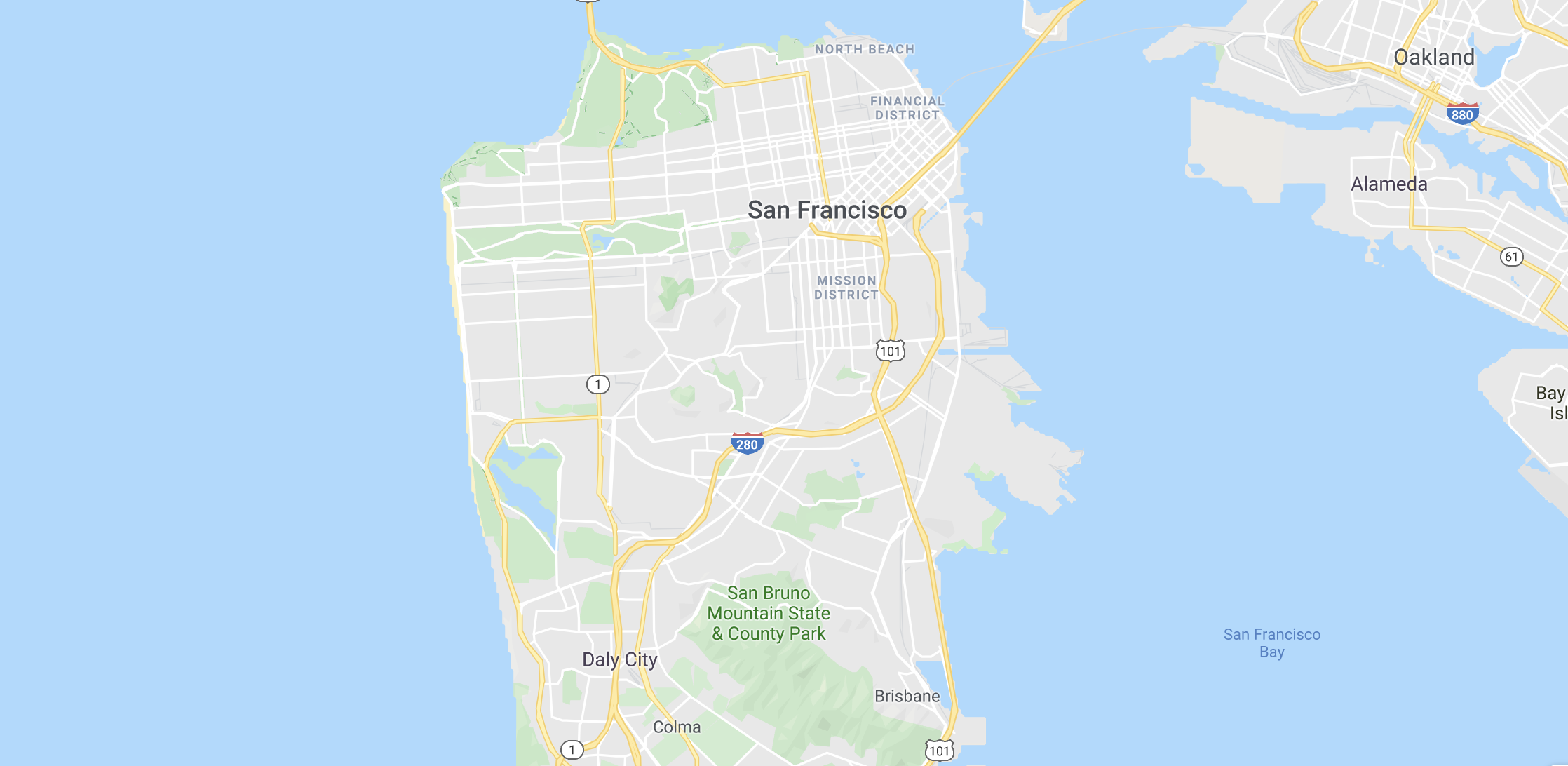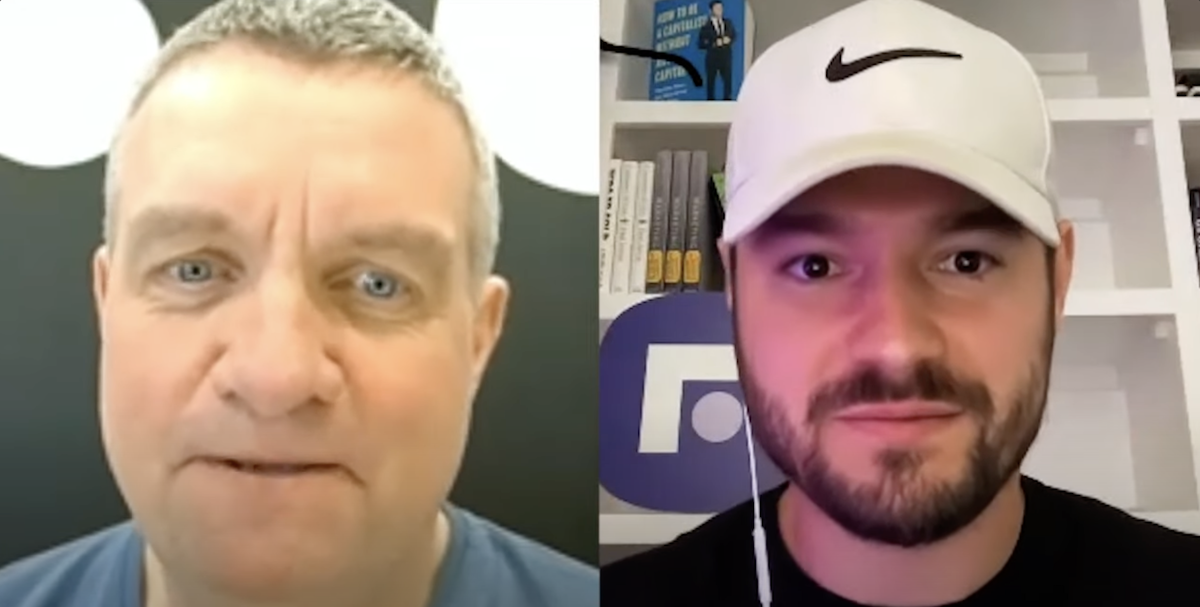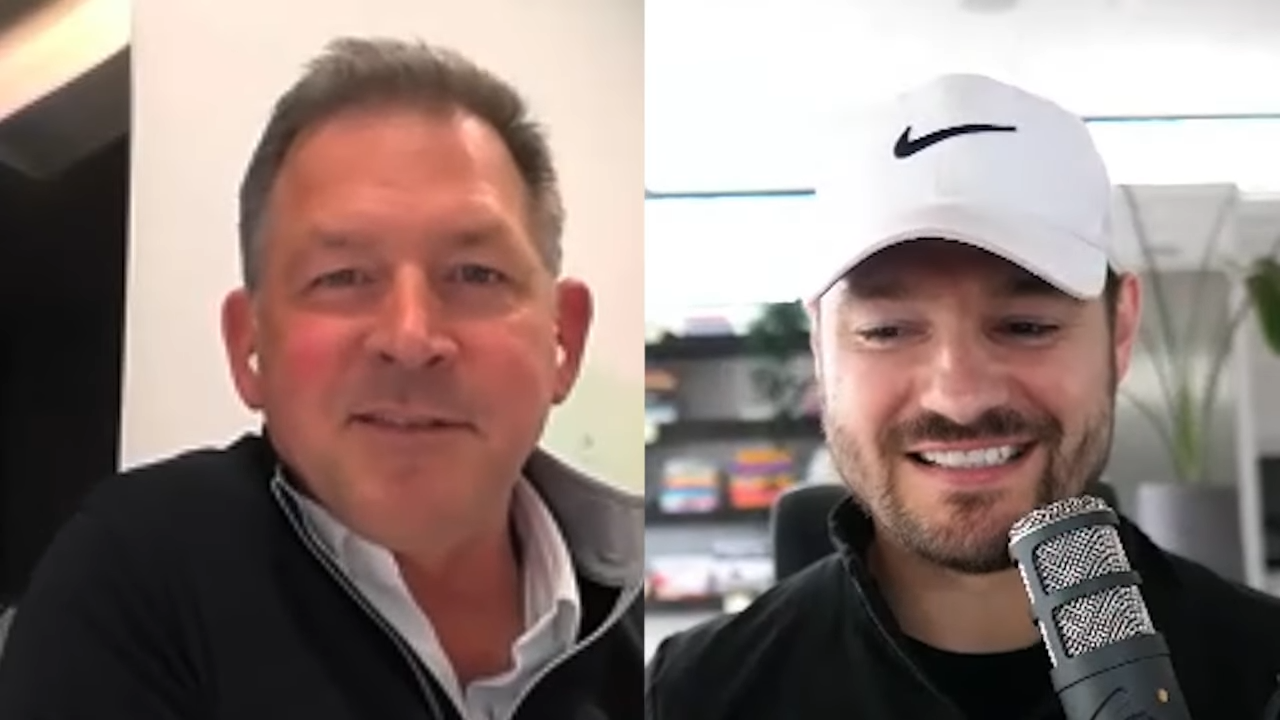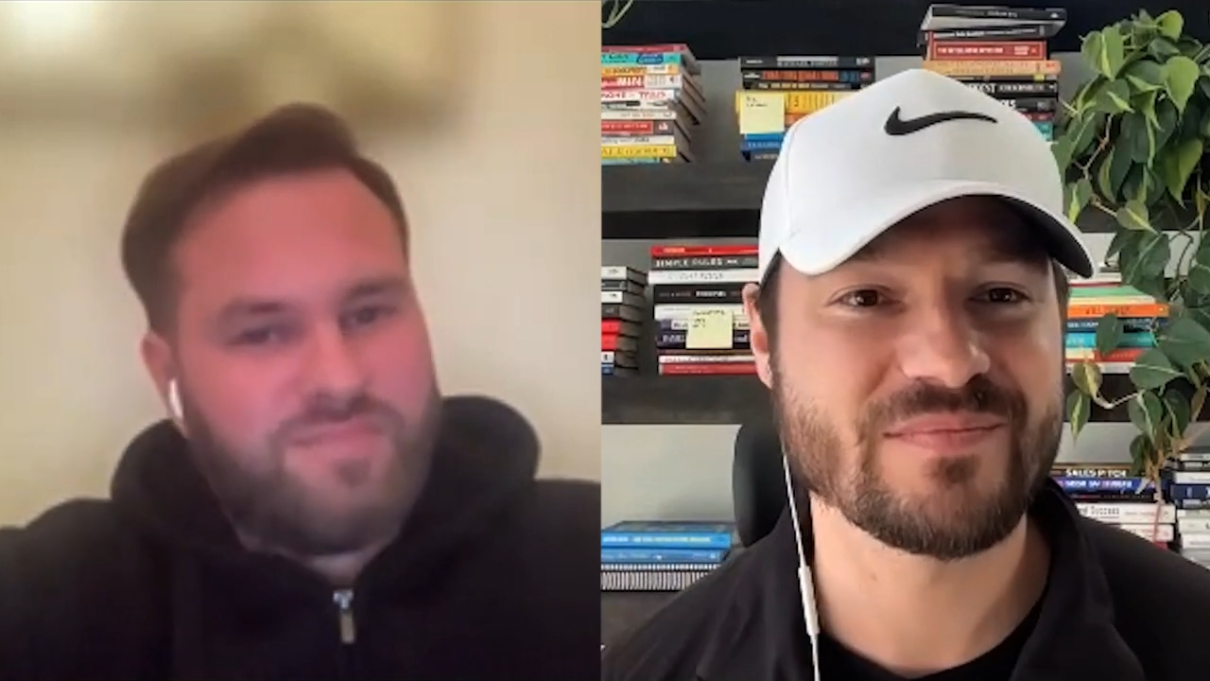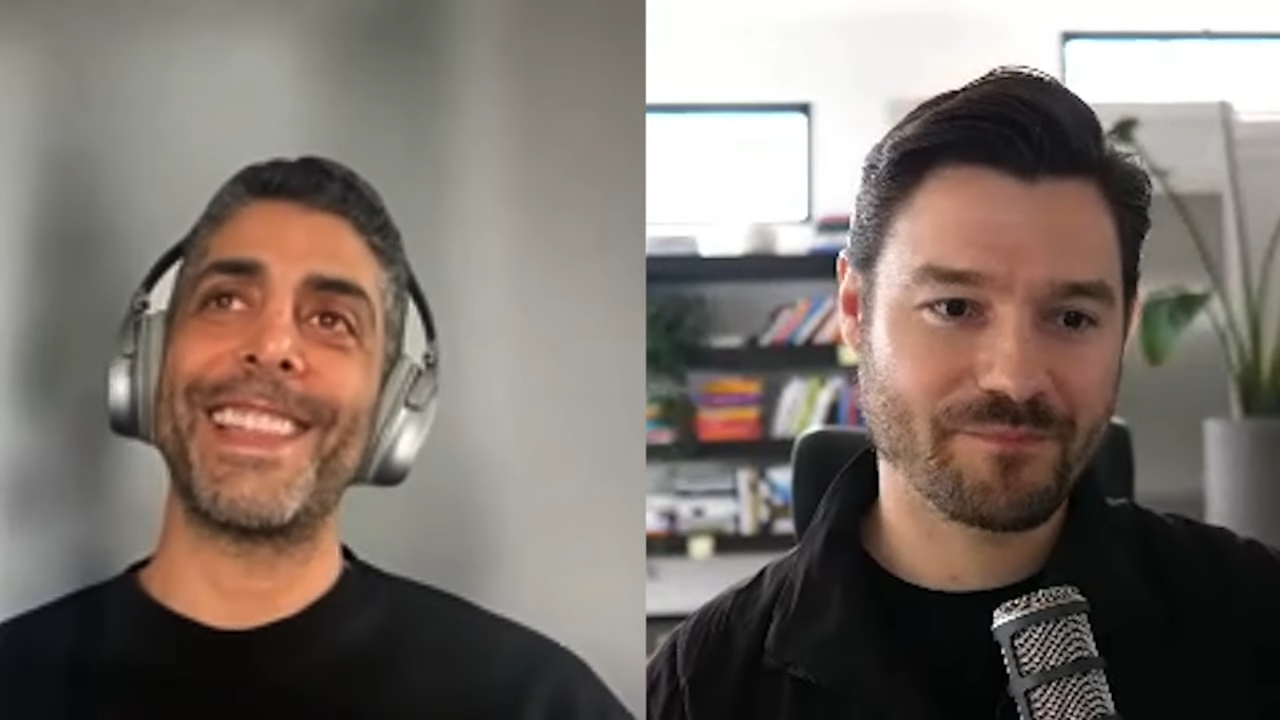When the search strategy startup Visably launched in beta in July, more than 1,000 customers signed up within three weeks.
The company, which is still pre-revenue, promises smarter strategies for brands to become more visible on search engines. Instead of simply telling companies how they perform on search engines, Visably software pinpoints where the brand exists within eCommerce sites, news outlets and publications and other online channels. Latka interviewed Visably’s founder Chris Dickey to learn more.
Visably also tells brands where they don’t exist, which allows companies to identify potential areas of improvement.
Dickey thinks of the Visably product as a map: “You can have your PR team take a look at those and say, ‘Oh yeah, we could definitely get you there.’ Or your eCommerce team says, ‘Oh, there’s a merchandising opportunity there, which we’re under leveraging,'” Dickey says.
The initial idea for Visably developed while Dickey ran his own public relations agency, when clients asked how to gain more impactful PR hits and higher placements in search.
Dickey and his team “developed a practice around it,” Dickey says. The approach included creating lists to discover where companies did and didn’t exist online. “And then the idea was, how the heck do we scale this? We need software.”
Dickey began turning his idea into a company by raising $800,000 upfront. Three angel investors contributed $700,000. The state of Wyoming offered Visably a $50,000 grant, and Dickey invested $50,000 of his own money as well.
Source: https://getlatka.com/companies/visably
Dickey and his team began developing the software at the beginning of 2019. Six people work at Visably, including Dickey, one other marketing specialist and four engineers. In addition to two front-end engineers and one back-end engineer, a fourth engineer concentrates on machine learning and AI.
Dickey used the network from his agency days to start building sign-ups for the product. The team also worked with B2B publications like PR Week and PR News to get Visably’s name onto potential customers’ radar, and Dickey continues to speak about the startup on podcasts.
Dickey hopes to launch a product in the fall of 2020. Even though the company burns through about $30,000 to $40,000 each month, Dickey keeps costs relatively low by not paying himself and paying one engineer in equity. If Visably doesn’t begin bringing in revenue in the fall, the company could run out of funding in the spring.
If that happens, “I think we’ll have to go out and raise more money,” Dickey says. “But all of us would love to keep as financially independent as possible.”
Featured SaaS Entrepreneur — Chris Dickey of Visably
Name: Chris Dickey, age 39, married with one kid
Where to find him: LinkedIn
Company: Visably
Noteworthy: Visably is using machine learning technology to classify various websites, differentiating between categories like media hits and eCommerce hits.
Favorite business book: “Customer Success: How Innovative Companies are Reducing Churn and Growing Recurring Revenue”
CEO he respects: BuzzSumo founders James Blackwell and Henly Wing Chiu
Favorite online tool for building the business: Keyword Everywhere
Average # of hours of sleep/night: 6
Transcript Excerpts
The problem with getting visibility with search
“For a page like … ‘best fleece jackets,’ it has decent search volume. It’s obviously a very interested customer in buying a fleece jacket. If you look up that keyword and you look at all the links on that page, what you’ll find is that there’s not a single manufacturer link being elevated by Google. And so if you want any presence on that page, you either have to buy it, which is pretty expensive, or you have to earn it. You have to earn some kind of media review or something like that. So there’s literally zero opportunity for an SEO on that page.”
Showing investors the value in search strategy
“As an agency, we established product-market fit before I even knew that this was going to be a product. I just know we needed this thing and our clients loved it. It was the most valuable thing we were doing for our clients. No other PR agencies in the space were talking about how to win more PR hits in search. They had this incredible impact. We could report on them really well. So I recognized that if we built this thing and we present it in the right light, there was a real thirst for it.”
How Visably’s search strategy has value in multiple industries
“I realized that this could help a whole lot of other industries as well. It’s not just a PR thing. It’s an econ thing. It’s a digital marketing thing. It could be an SEM thing. And so it’s a multichannel way of managing a brand in search. And so I’m like, ‘Okay, there’s something cool here. I can’t believe no one’s done it.'”
Making the most of organic visibility without paid campaigns
“People are spending a lot of money on paid campaigns and on Google ads. If you had a measuring stick telling you what’s the likelihood that someone’s going to find you organically versus not find you organically, that would inform your cost per click strategy. So we can do that now … And if you have a strong organic visibility already among … thousands of keywords, you can perhaps shift your cost per click strategy toward keywords you have less organic visibility or less of chance to actually get that customer.”
Full Transcript Nathan.: Hello everyone. My guest today is Chris Dickey. He’s building a company called Visibly, a smarter search strategy is what he’s focused on. Trying to help brands identify their footprint in search. All right, Chris, you ready to take us to the top? Chris: Absolutely. Nathan.: So I think when most people think about this space, they probably use a tool like a Moz or some sort of SEM rush, help us understand your different vision. Chris: Yeah, absolutely. So I think those are fantastic tools. I use them as well. There’s no reason you shouldn’t be using either of those platforms. However, it’s important to recognize that what we’re interested in is understanding what are all the potential touch points where a customer may find a brand in search. And where those platforms fall short is they focus exclusively on how your website or your own domain is performing, which is just one of many ways that a customer may find you. There’s this massive kind of map of a customer journey where they might click on a review. And that might be their very first touch point. It might be an ad. Maybe an eCommerce website. Say you’re selling shoes or something like that. Someone actually clicks on an Amazon link and Amazon is recommending your product. Chris: I think the thing that I come from putting the perspective of a PR agency and we are always leveraging third party endorsements to help promote our clients’ products and services. Chris: And that’s essentially the first page of search is this really multichannel mashup of different stuff like reviews, and eCommerce, and ads, and Quora and questions. And the thing about an innate [inaudible 00:01:42] or a Moz or SCM Rush, is that they only tell you how your website is performing. Chris: So for a page like, I’d like to throw out the term best fleece jackets, it has decent search volume. It’s obviously a very interested customer in buying a fleece jacket. If you look up that keyword and you look at all the links on that page, what you’ll find is that there’s not a single manufacturer link being elevated by Google. Chris: And so if you want any presence on that page, you either have to buy it, which is pretty expensive, or you have to earn it. You have to earn some kind of media review or something like that. So there’s literally zero opportunity for an SEO on that page yet- Nathan.: Sorry, just to cut you off real quick. So how are you helping a brand earn that? Chris: So what we’re doing is we’re providing the intelligence on, where does your brand exist currently? Who’s talking about your brand? And then what channel is it? So, I started this kind of quest with like a simple question. Where does my brand exist in search? That question was not being answered. That solution was not out there. You can find out on your website, you can find out on your advertising, you couldn’t just figure out how within this SERP, how are people finding my brand? Chris: So Visibly actually looks at the content behind every single link on the page and identifies yes or no is your branded content present on that page? And then number two, what we’re doing is we’re segmenting all the results by common channels that kind of map to different marketing departments. Chris: So we’re identifying all the PR hits on the page. We’re identifying all the brand owned hits on the page. We’re also identifying all the eCommerce that’s on the page. And so once you can do that and you get this nice map of where your brand is and where it’s not and it’s also channel specific, you can have your PR team take a look at those and say, “Oh yeah, we could definitely get you there.” Or your eCommerce team says, “Oh, there’s a merchandising opportunity there, which we’re under leveraging.” Nathan.: So you could see the fleece jacket if you’re the manufacturer, you’ve already got a presence, you already spend money on ads, you see yourself listed in the three paid ads on the page, there’s three e-commerce like Amazon thing is listed something else from Google stores is listed, and you can basically see in the metadata if your fleece jacket is in any of those. And then lastly, maybe there’s three articles, one from Nat Geo, one from OutdoorAdventure.com and another one that wrote press about it, and maybe you don’t have any press exposure, so your PR team would then go try and get organic press placement so that you place there? Chris: Yeah, exactly. So it’s also like a list building tool. So number one, I describe it we’re a listening platform where we’re listening, we’re figuring out who’s talking about you, where you exist. Number two, we’re a list building tool. We help you segment and organize and extract clean lists from their search results. What Visibly will do for you more than tell you where you exist, it also tells you where you don’t exist, which is what I call it’s like your blind spots. Where are these areas that you didn’t even know you weren’t leveraging that you could if you just have that information? Nathan.: I think we get the product now, help me understand how you monetize. So what are customers paying on average per month for this? Chris: So we are pre-revenue, we’re in beta. We’ve been developing the product for about a year and a half. We launched the beta product earlier this month, in fact, so July. So it’s free. Anybody can come to the website, sign up for a free account, use it as much as they wish- Nathan.: How many free sign ups do you have? Chris: We are around 1,000. Nathan.: And how did you get to those? It’s not easy to get your first 100. Chris: We’re about three weeks in. So I feel fine with that. It’s tough. We started with our own networks. I’m an agency owner. So I know a lot of marketing directors and a lot of other agencies out there and have been able to get in front of them. We’ve also worked with several B2B outlets like PR Week, PR News, PR Daily. We’re going to start doing some more work with the SEO community pretty soon with Search Engine Land, Search Engine Journal, things like that. Chris: We’re chatting about search engine visibility strategy on podcasts. We’re telling people, as an agency owner, this was not an idea that I just came up with one day, this started four years ago with my PR clients saying, “How do we have more impactful PR hits?” And we recognized at that point, the most impactful thing we could do for our clients, the PR team, was win more placements in search, the top of search. And the places that their websites [inaudible 00:06:34] rank. And we kind of developed a practice around it. And then the idea was, how the heck do we scale this? We need software. And that’s when I had that question saying, “Where does my brand exist in search? How do we audit these search”- Nathan.: Chris, how much did you spend, this is always the challenging part, right? When you’re spinning a piece of software out of an agency, is how much of your agency profits do you dedicate to building the MVP of the software? It’s not cheap to build good software. So how’d you make that decision and how much have you spent to date on the software? Chris: Totally different companies. Agency operates on its own books and its own LLC. Visibly is its own thing. We have investors for that. Nathan.: How much did you raise? Chris: We raised $700,000 upfront and we received a grant from the State of Wyoming to kick it off for $50,000. Then I put in another say $50,000 of my own money. So I’d say to date, we’ve infused around $800,000, and we haven’t spent all that yet, but- Nathan.: Chris, that must make you super nervous, right? What if you launch this and no one wants it? Chris: I think every startup has that question to mind, right? It’s entirely possible that someone’s like, “Oh, I don’t, I don’t care about that.” Nathan.: But can’t you hedge that by getting like presales to some degree? Chris: Yeah. We just haven’t built a product yet that we can sell yet. And I feel pretty confident. Once you have this data, there’s so much you can do with it. For instance, I’ll give you another example of how we can apply this data is cost per click. People are spending a lot of money on paid campaigns and on Google ads. If you had a measure stick telling you what’s the likelihood that someone’s going to find you organically versus not find you organically, that would inform your cost per click strategy. Chris: So we can do that now. We can tell you what’s your organic visibility on any page, not your website, your organic visibility. So across every single, all of these links are talking about you, or not talking about you. And if you have a strong organic visibility already among whatever, how many keywords, thousands of keywords, you can perhaps shift your cost per click strategy toward keywords you have less organic visibility on or less of a chance to actually get that customer. Nathan.: Yep. So help me understand the team size today. So how many people have been working on just Visibly? Chris: Well, a bunch of advisors, but we have four engineers working from everywhere. We have two backend guys. We have one front end guy. And we have one dude doing machine learning and AI because we’re categorizing and classifying all these websites. That’s how we identify what’s an earned media hit versus an eCommerce hit. And we’ve cataloged millions of websites at this point. And then we have two marketing guys, myself included, I guess you could say, I’m a marketing guy and that’s it. We’re a skinny little startup. Nathan.: So the reason I’m asking is because you always want to sort of back into, “Okay, our current total expenses per month with no revenue is X. We need to get to that amount to get to profitability as quick as possible.” So obviously you want to try and minimize expenses before you have revenue, what are you burning right now per month? We talking like 10 grand a month or like 100 grand a month? Chris: Honestly, I think we’re doing 30 to 40 grand a month, which is pretty, pretty good. I think we can be spending a lot more than that. I’m not paying myself right now. We have one of our engineers is basically working for equity only. So I think we’re cutting as many costs as possible at this stage in the game. It is all about getting to a paid product, which we expect will be out sometime this fall. At which point, we hope that we can kind of develop our freemium user base to a level that some of those people will see the value in what we’re doing and want to jump onto a more premium level. Nathan.: Chris, do you have that much time? Obviously I have to look at your cash in the bank today and project that you’re going to burn 40k every month between now and the fall. How much buffer have you given yourself? What if it takes you a little bit longer than fall to actually get to real paid revenue? Do you have enough buffer in the bank? Chris: We should be good until spring 2021. Nathan.: Okay. So you have fall, winter, and sort of spring to really start cranking on the revenue, and then you’ll have to make drastic changes if you can’t get meaningful revenue by spring 2021. Chris: Well, I wouldn’t say drastic. I think we’ll have to go out and raise more money. We did a seed round and we’d either do a seed two or a series a, but all of us would love to keep as financially independent as possible. Nathan.: Yeah. How did you convince someone to believe in you guys early on. That’s how we were able to raise 700 grand. So, who did you convince and how did you convince them? Did you just point to your agency that you built and said, “Look, I’ve done it before. I know it’s a problem I do with all my agency clients.” Chris: Yeah. Part of it is a product market fit is always the question that everyone’s talking about at this point. And in many ways, as an agency, we establish product market fit, before I even knew that this was going to be a product, I just know we needed this thing and our clients loved it. It was the most valuable thing we were doing for our clients. No other PR agencies in the space were talking about how to win more PR hits in search. They had this incredible impact. We could report on them really well. So I recognized that if we built this thing and we present it in the right light, there was a real thirst for it. Chris: And then I realized that this could help a whole lot of other industries as well. It’s not just a PR thing. It’s an econ thing. It’s a digital marketing thing. It could be an SEM thing. And so it’s a multichannel way of managing a brand in search. And so I’m like, “Okay, there’s something cool here. I can’t believe no one’s done it.” We kind of did our diligence upfront. We won that early grant. So we had very little skin in the game from day one. We developed an MVP that had some patents pending on it. And then we took that to investors and they all understood what we were trying to accomplish. Chris: We were lucky that we only have three angels involved at this point. So it’s a really tight group of people. They’re people who I think believe in me and what I can do with this thing. And so that’s where we are. And I think I’m just fortunate that we had a network that I could pitch to and would accept what we were trying to accomplish. Chris: I’m not the serial founder. I think a lot of people at this stage that went to some A list MBA school and they have the- Nathan.: But yeah, you have what counts, which is you have an agency, very successful [inaudible 00:13:43] come out of agencies because you already know the problem and you already have a built in customer base. Those should be your first bang customers is your just upselling on top of professional services, you’re upselling the software subscription. So we’ll see what happens. I want to have an update interview with you in spring 2021 and see how it’s going. But for now, we’re out of time, let’s wrap up with the famous five. Number one, what’s your favorite business book? Chris: I’ve been reading A Customer Success, which is all about how to generate a really great SAS solution- Nathan.: Sorry the book’s just called Customer Success? Chris: I believe it is. Yeah. It’s obviously SEO optimized. Nathan.: Yeah. Number two, Is there a CEO you’re following or studying? Chris: I’m a big fan of the guys from BuzzSumo and the original team that was there. And I just loved how they built it from the ground up with almost no investment. And I love everything about that company. Nathan.: Number three, what’s your favorite online tool for building your company besides Visibly? Chris: Oh man, there’s a bunch of Chrome plugins, which I’m a big fan of. One that I use quite often is Keywords Everywhere. And it’s just a really great way to kind of keep your mind thinking about keywords all while you’re searching. Nathan.: Number four, how many hours of sleep do you get every night? Chris: Six. Nathan.: That’s not bad. And what’s your situation? Married? Single? Kids? Chris: I’m married and I have kids and I’ve got little kids. Nathan.: How many? Chris: I got one. I got one four year old and this pandemic’s been a hoot. Nathan.: I can imagine. And how old are you Chris? Chris: 39. Nathan.: Chris: Just to be yourself. Don’t try to be someone that you want to be, or you think you should be, or you think other people want you to be, be your authentic self. Nathan.: Guys there you have it. Visibly.com spinning it out of his agency, they raised 700 grand to build this tool, helps brands understand what their footprint looks like on search across multiple assets. PR, paid organic, a review rating on Amazon, whatever it is, they help you understand that. They are pre-revenue today. They’ve got about six people on the team, four engineers, two marketers, looking to launch here in the next couple of months, call it fall 2020. Burning about 30 to 40 grand per month right now as they look to drive new free signups. About a thousand free signups so far in the first three weeks they’ve been accepting it, so nice early traction. We’ll see what happens. Chris. Thanks for taking us to the top. Chris: Thanks Nathan.

